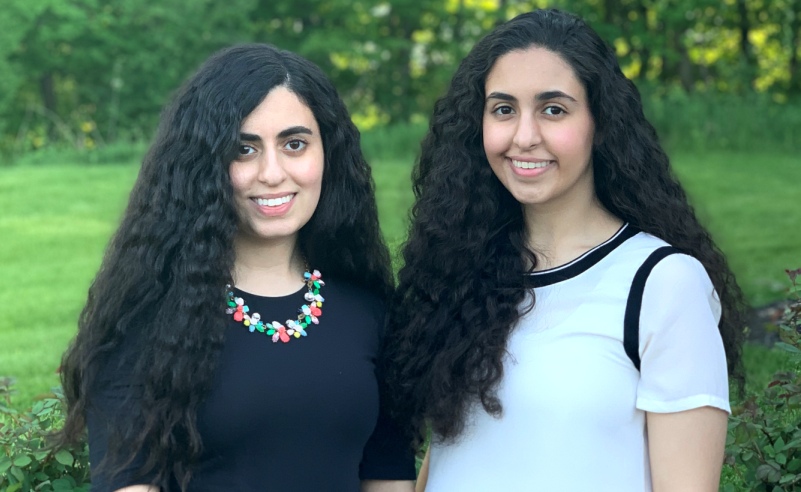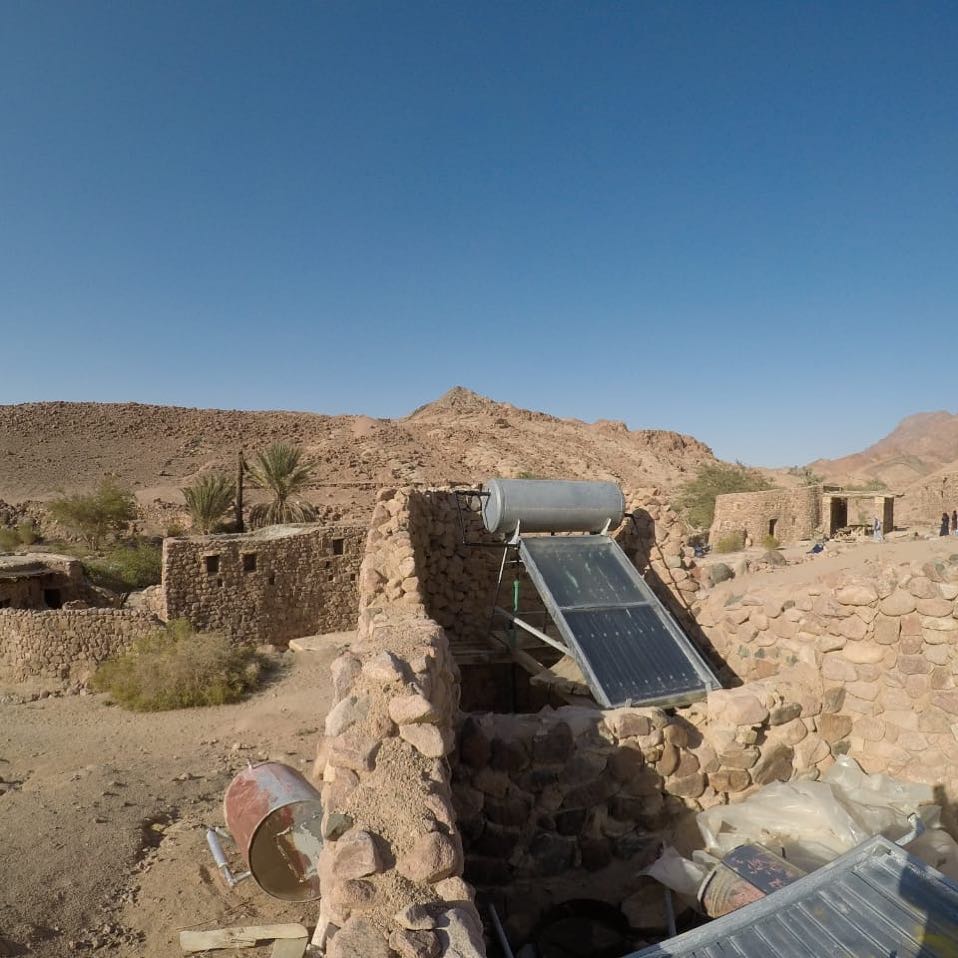Created by sisters Deena and Sarah Mousa, Shamsina’s low-cost solar heaters were named as one of the top five finalists in the challenge’s Social Impact or Cultural Innovation track in a virtual prize ceremony earlier this week. We talk to the young innovators to find out more.

It was while volunteering in some of Cairo’s underprivileged, informal neighborhoods that Sarah Mousa first realised a need for cheap and accessible methods of heating water inside homes. “I noticed that some families were using kerosene lamps, gas tanks or even makeshift fires to heat water for everyday needs like taking a bath or cleaning the house,” she explains. “In Al-Darb Al-Ahmar in Cairo, I heard from residents that an international NGO had installed about a dozen makeshift solar water heaters several years ago as part of a short-term project, but because it was a one-time effort there was no way for others to benefit. This sparked the idea behind Shamsina. We wanted to create a sustainable way for people to access affordable, clean hot water at scale.”
From here, Sarah and her sister Deena began to dig deeper into the problem, finding that nearly 50% of Egyptians do not have access to a modern water heating system. “Another major issue is the rising price of electricity. Subsidy cuts mean that since 2016, electricity bills have tripled on average for Egyptian households. For us, this presents an opportunity to create a business model that benefits a wider range of Egyptians – from the energy poor, to energy conscious consumers tired of rising bills,” explains Sarah.
This clear need, matched with a unique idea for a business model, set the sisters off on their path to create a simple and effective water heater that harnesses the power of Egypt’s endlessly sunny days. “Most solar heaters work similarly,” explains Sarah. “They consist of two main units: a storage unit where the water is contained and a panel that helps heat the water. The panel on our heater consists of insulated tubes that heat the water running through them by absorbing the heat of the sun. The beauty of our heater is its simplicity. Shamsina innovates on the traditional flat panel heater by making it more compact, and better suited for local infrastructures.”

Now producing their third iteration of solar heater, Shamsina is always refining the technology to make the heaters as efficient as possible. Their business model is equally innovative: “We operate under a cross-subsidy business model, which means that we sell two lines of water heaters. One is for higher income groups and the other is for lower-income markets. Proceeds from our higher end heaters contribute towards subsidising the cost of heaters for energy poor communities,” explains Sarah.
Having installed their heaters successfully in 25 locations, across various parts of Egypt, it’s fair to say that Shamsina has proven their concept. “Our heaters can be found from Dumyat to Sinai, Cairo or Qena. We wanted to make sure to test them in diverse locations—urban, rural, desert, and coastal. We learned a lot from these pilots and took feedback to update both our technology and business model,” Sarah tells us.
Since January 2020, Shamsina has been incubated by the prestigious Harvard Innovation Labs (i-Lab), as part of their Build It Venture Programme. As the sisters explain, the annual Harvard President’s Innovation Challenge is like the Oscars for the teams being incubated by the i-Lab. “We were lucky to have mentors and colleagues who were really generous in giving feedback on everything from our business model to our presentation technique, so this was immensely helpful preparation,” says Sarah.
Though they didn’t manage to score a cash prize for Shamsina, the founding sisters have gained invaluable experience nonetheless. “Being named a finalist is humbling,” says Sarah. “The competition brings hundreds of applicants from across Harvard’s broader community, and has spotlighted truly transformational businesses, so for Shamsina to be recognized among them is exciting, it inspires us to keep innovating for social good.”


